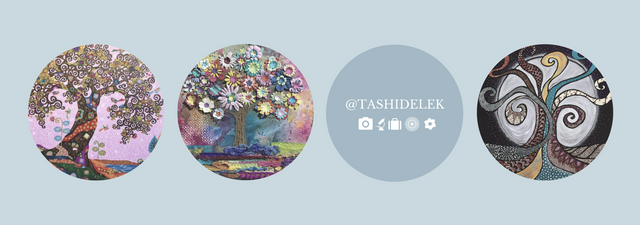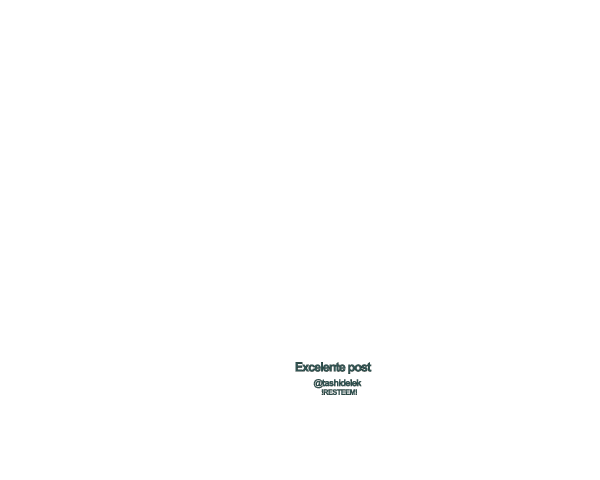[EN] Are we entering a new education? - Neuroeducation in Spain
Recently, I read a very interesting article that gave me hope that the current education system can change thanks to neuroeducation. In this article, several experts claim that discoveries in the functioning of the brain can lead to transform the way we learn. But before seeing their proposals, let's see what neuroeducation consists of.
Neuroeducation or Neuropedagogy is the discipline or transdisciplina that promotes a greater integration of the sciences of education with those that deal with neurological development.
The adoption of the term neuroeducation, (which can also be written neuro-education or NeuroEducation) is very recent and deserves to be analyzed in some detail. In the first place, neuroeducation suggests a meeting between the sciences of education and neurosciences, for that reason expressions like educational neurosciences (educational neurosciences) and similar ones are also used for the same purpose of integrating the sciences of the brain, of the mind and of The education. Wikipedia

"They have been teaching us maths wrong all this time"
Francisco Mora, Professor of Human Physiology at the Complutense University of Madrid, Spain.
Francisco Mora is a neuroeducation specialist and author of the book "Neuroeducation: you can only learn what you love". This dossier is strongly convinced that the key point of this new approach to education is that the brain needs the emotion to learn.
Mora explains that everything we feel, what we believe, what we think, what we do in the world is a product of the functioning of the brain. That is why we are fundamentally emotional beings, which makes us critical and therefore reasoning.
One of the latest revelations made by science about the functioning of the brain is the process of reading. The human brain is not designed to read, but evolves and learns that skill, because reading is a cultural invention.
"When you study how the brain reads, in reality what you are observing is how you learn something new, and that is when you start to enter the area of neuroplasticity"
Maryanne Wolf, cognitive neuroscientist and director of the Center for Research in Reading and Language at Tufts University, Massachusetts, United States.
Dr. Mora agrees and goes a step further, saying that "reading is something that we have never known when to teach it," but neuroeducation and the science that tells us that transformation in reading only occurs in the brain between 6 or 7 years, which is why Finland began to teach how to read with joy and that is only achieved when maturity is reached in those areas of the brain that are the ones that transform reading. One of the key aspects of neuroeducation is to awaken curiosity in Students Curiosity is the basic emotional element to be able to teach well. Teach with curiosity, always make the dull interesting and you will see how the listener opens their eyes.
Pay attention! That is sterile, it is useless. And that is the transformation of neuroeducation

Another aspect of neuroeducation is the environment in which learning takes place. In this aspect, Mora emphasizes the importance of neuroarchitecture in education. This new movement is the conjunction of thoughts between architects and neuroscientists assessing the functioning of the brain for the construction of new buildings.
"The orientation of light, sound, heat and cold, how often posters need to be changed... Studies have been done that show that when all this is taken into account changes the mental performance of students , as happened in Finland, Norway and Sweden, why Finland, the country with the "best education in the world", is transforming the architecture of its schools"

But how does curiosity arise?
For Mora it is very simple, although "it seems that being curious sometimes has some negative connotation, curiosity is an emotional anchor, we are curious bugs, we are constantly looking for new, different things that break the scheme. That curiosity is what pushes to learn, the origin is to make curious what is taught, and that draws attention".
The medical doctor insists that the important thing is to make interesting what is taught. "It may be that the word is not required, but a simple photo, a drawing, something exotic... Then you break the schemes, they pay attention to you and when that happens is when you have to release the four or five basic concepts of that in each class."

"I introduced the element of surprise and it is proven that it favors memory a lot"
José Luis Redondo, social science teenager teacher in Úbeda, Andalusia, Spain.
This teacher applies certain techniques that drive neuroeducation but has a different approach and focuses more on controlling emotions.
When I discovered that he taught in Úbeda, Jaén, the city where I was born and where I studied, I could not be happier. I hope that my nephews are lucky enough to have him as a teacher because I really believe that these techniques should be taught in all the schools and institutes, without exception. I'm sure it would be a good remedy against one of the most common diseases of this century, anxiety. In addition to forging human beings more able to control their impulses and, therefore, more chances of success in their maturity.
"I do not know if we can talk about 'doing' neuroeducation, but this discipline is more 'to be' In my classroom I work a lot with emotional education, how to identify emotions, and I apply dynamics of confrontation of anger and fear. Activities of mindfulness, that is to say being here and now, and I teach them to control their breathing and manage their thoughts in order to relax the mind"

For both the specialist in the functioning of the brain, and the teacher who heads the classroom daily and guides their students, an educational transformation is essential. Both question the current duration of class periods.
Mora believes that we must begin to transform the formation of schools.
I am against having a class at the university last 50 minutes. A class should last around 40 minutes if you make it interesting, better less"
Professor José Luis Redondo proposes changing the schedule for morning classes with teenagers because they are still in the sleep phase.
"In the classroom, almost everything has to be changed and class times are not the most appropriate, adolescents should start classes later because they have" another circadian rhythm"; that is, physical, mental and behavioral changes which follow a daily cycle. When we start classes at 8 in the morning, many of them are still in the sleep phase. And that is as simple as delaying the beginning one hour or even teaching in the afternoon, when they are more active"

Sources:

I hope you liked this article or at least you find it interesting. If so, do not forget to leave a comment below with your impressions.
Thanks for stopping by here!


hi M,
interesting article :D
I love Dr. Mora's thoughts on education though I only agree on half of this
I believe that every student CAN learn everything specially if they also think they CAN. Sometimes, they even think they can't at first but if the teacher understands this , the teacher could turn that around for the student to think otherwise by making the class lovable or at least satisfying if not fun at first.
I do think though that when a student FEELS bad, disappointed, scared, frustrated, bored specially angry - then the brain actually stops learning and am not the only one who thinks so. Indeed our emotions could get the best of us at everything not just in learning. I don't remember who told me this once
The teachers play a very important role in the classroom imho and unfortunately if I may say so most of the schools here is still using the very obsolete method. Where I came from we are just there to guide, the students get to learn something through play and activities where in they have more chances of participating and do a hands on to finally get to understand what they really need to learn, learn it and have a higher retention because of that unforgettable "ahha" moment they had when they were studying whatever concept was being thought. Unfortunately, though many teachers here are fans of "The Dead Poet Society" they must be 'not brave enough" to go around the system if not against. :D
best wishes with your classes and I hope you're warm enough for the fest
Take care,
Ivy ^ ^
I fully agree with Dr.Mora statement. I fully believe that the most efficient way to teach something is departing from the idea of making the topic to be learnt sufficiently interesting for our children.
Anything can be interesting but we have to find the way to be attractive for the the kids.
Ah propósito de tus genuinas ideas educativas, publiqué un post sobre las emociones que guarda mucha relación con el tuyo... Espero tu valiosa visita y comentario. link

Éxitos y muchas bendiciones en todas tus metas y proyectos. Abrazos
Está genial el post, ya hubiese querido tener un profe así, y ojalá tus sobris tengan la suerte de tenerle. Un fuerte abrazo. Ains que despiste, te postee en el de inglés jiijj
A good article - interesting and informative. I agree with it . The fact that teenagers learn better at a late start in the morning is know since many years and it was totally ignored. The official people in power don't want to change their system. In Germany we have many people developing alternatives schools but they were so regulated, so many rules ... that most of them gave in. Free schooling is not wanted...
Learning without beeing curious doesn't work very well. The pupil on your photo are showing their boredom - in this state no brain wants to "work".
Schools and learning is an important issue - i understand your feeling lucky for your nephew! In two years my grandson has to go to school and i am not happy about that. I don't believe a transformation in schools in the next years...
To listen to the audio version of this article click on the play image.

Brought to you by @tts. If you find it useful please consider upvoting this reply.
You got a 31.98% upvote from @ocdb courtesy of @tashidelek!
@ocdb is a non-profit bidbot for whitelisted Steemians, check our website https://thegoodwhales.io/ for the whitelist, queue and delegation info. Join our Discord channel for more information
If you like what @ocd does, consider voting for our witness through SteemConnect or on Steemit Witnesses
Congratulations @tashidelek! You have completed the following achievement on the Steem blockchain and have been rewarded with new badge(s) :
Click here to view your Board of Honor
If you no longer want to receive notifications, reply to this comment with the word
STOPDo not miss the last post from @steemitboard: